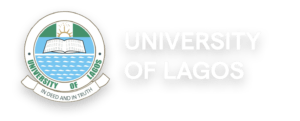Professor of Haematology and Blood Transfusion at the College of Medicine, University of Lagos (CMUL), Alani Sulaimon Akanmu, at the 14th Inaugural Lecture for the 2023/2024 academic session, has shared his journey through the world of haematology and blood transfusion.
The Inaugural Lecture titled: The Virus and the Malnourished Red Cells: It is a Matter of Time; Humanity is Set to have the last LAUGH over the Virus was held on Wednesday, April 17, 2024 at the J. F. Ade Ajayi Auditorium, UNILAG, which was filled to the brim with family, friends, royalty, mentees, staff, students, and well-wishers of the Inaugural Lecturer. The Vice-Chancellor, Prof. Folasade Ogunsola, OON, FAS presided over the lecture.




In his lecture, Prof. Akanmu disclosed his journey into the world of haematology and blood transfusion medicine started in 1985, while working as a medical officer during his Youth service days. According to him, he had gone through the frustrations associated with diagnosing and managing patients with haemophilia as a medical officer.
The renowned Professor explained that the first sets of patients he attended to when he joined the Department of Haematology and blood transfusion, at the Lagos University Teaching Hospital (LUTH) in 1986 were patients with haemophilia. He narrated his journey into the world of HIV medicine dating back to 1987 when his teacher, Prof Ibironke Akinsete received a delegation from CDC Atlanta to be specifically trained on the use of Enzyme-Linked Immunosorbent Assay for the diagnosis of HIV antibodies. This followed the declaration by the World Health Organisation (WHO) in 1987 that every unit of blood and blood product must be screened and found negative for HIV antibodies before transfusion.



The Professor of Haematology and Blood transfusion revealed that, at that time, mortality from these conditions was uniformly 100 percent as there was nothing like antiretroviral therapy in the early days. Prof Akanmu and his teacher documented their findings, in those early days, in several publications as projected during this inaugural lecture. However, an important determinant of death in many of the patients independent of opportunistic infections is severe anaemia. In his study first presented at the 4th National Conference on HIV and AIDS in 2004, he demonstrated that anaemia severe enough to warrant the use of blood transfusion was associated with death. Together with many of his mentees, they researched the aetiology of anaemia in the setting of HIV infection and demonstrated how HIV malnourishes red cells and results in anaemia.

Professor Akanmu talked the audience through how he provided evidence that red cell antigen immunophenotyping was a useful forensic tool for parentage testing, how he adapted a qualitative haemoglobin solubility test into a quantitative test and how he successfully extracted thrombin as a powder from aged serum using absolute ethanol and chloroform. He was able to harvest, and quality assure thromboplastin from the brains of goats and cows rather than the brains of human cadavers as well as develop a home-grown technique to detect anti-platelet antibodies.

He showed the audience the phases of patients that affected by AIDS ranging from painful conditions such as perianal ulcerative herpes simplex, herpetic ophthalmitis, extreme wasting otherwise referred to as inanition and other opportunistic illnesses such as cerebral toxoplasmosis and opportunistic cancers.
He also pointed out how HIV infection causes malabsorption of micro and macronutrients by induction of dysfunctional absorptive enterocytes which he termed HIV enteropathy; how HIV causes severe megaloblastosis, iron-sufficient iron-lack anaemia and how HIV result in impaired production of erythropoietin.



Prof. Akanmu rounded up his Inaugural Lecture by discussing how the availability of potent and tolerable antiretroviral therapy has caused the disappearance of AIDS and how the use of this therapy has extended the lifespan of people living with HIV by an average of 33 years. He also showed that science is at least one step ahead of the HIV menace as newer drugs and newer techniques are continuously being developed to overcome the phenomenon of drug resistance which may compromise successful antiretroviral therapy.
Born on June 8, 1958 in Iwo, Osun state, Prof. Alani Sulaimon Akanmu has the following academic and professional qualifications: MB.BS (1984), MWCP Laboratory Medicine (1989); FMCPath (1992); Doctor of Medicine (MD) (2020) and Fellow Academy of Medicine Specialties of Nigeria (FAMedS) (2021). He joined the services of the College of Medicine, University of Lagos (CMUL) as Lecturer I in the Department of Haematology and Blood Transfusion in 1993 and rose through the ranks to become a professor in 2010.













Reporter: Ndidi J. Odinikaeze
Photographer: Joshua Michael

